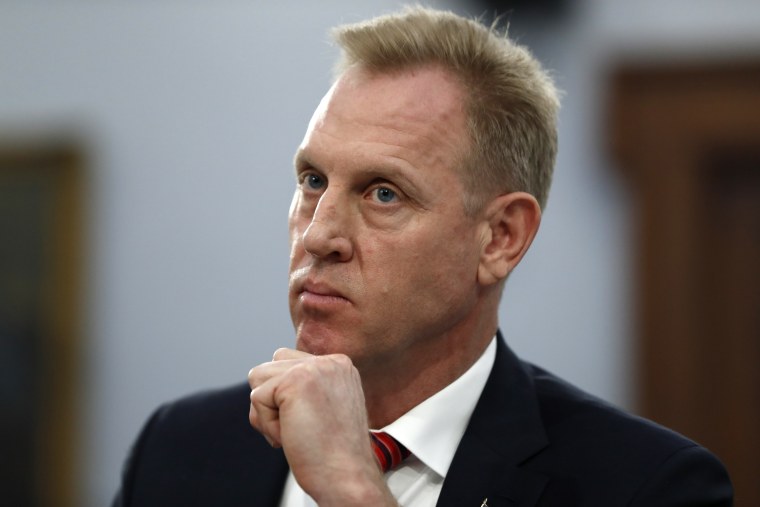The original plan was for James Mattis to serve as the secretary of Defense through the end of February, giving the White House time to search for his successor and creating the conditions for a smooth transition from one Pentagon chief to the next.
Indeed, soon after Mattis announced his resignation last year, White House Press Secretary Sarah Huckabee Sanders told reporters, "Let's not forget, he is not just walking out the door. This will be an orderly process and continue to be a good relationship over the next couple of months."
As regular readers know, that didn't last. Donald Trump eventually learned via television what the retired four-star general wrote in his resignation letter -- which the president could've read but didn't -- at which point the Republican asked someone to direct Mattis to leave his post on Dec. 31, without a successor in mind.
The process that was supposed to be "orderly" turned into an unprecedented four-month period in which there was no permanent Pentagon chief and no presidential nominee. Yesterday, finally, Trump announced his choice for the post.
President Donald Trump is expected to nominate Patrick Shanahan as secretary of defense, the White House announced Thursday.Shanahan, who has no military experience and is the current acting secretary, worked at Boeing for more than 30 years before Trump tapped him to serve as deputy defense secretary in 2017. He was thrust into the role of acting Pentagon chief at the start of this year, after Defense Secretary James Mattis was ousted by Trump ahead of his planned departure date.
It's likely Shanahan would've been nominated sooner, but he was facing a Defense Department ethics investigation. The White House apparently wanted to wait until it was resolved in his favor.
Shanahan will now have to go through the Senate confirmation process, and given Republican control of the chamber, his odds of success are quite good.
That said, his nomination is not without controversy.
Senate Democrats, for example, are likely to focus on Shanahan's inexperience, his ethics investigation, and his eagerness to go along with Trump's whims on everything from U.S. policy in Syria to the "Space Force."
There's also the matter of Shanahan's efforts to advance the White House's border-wall plan by redirecting funds though controversial budget schemes.
Politico noted this morning, the Shanahan nomination "sets the stage for a Senate showdown on his rocky tenure as acting Pentagon chief -- as well as Trump's own stewardship of military affairs."
Given the arithmetic of the Senate, that's a fight Republicans are likely to win, though I suspect many Senate Dems are nevertheless eager to have the debate.
